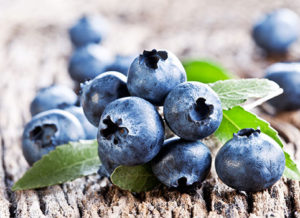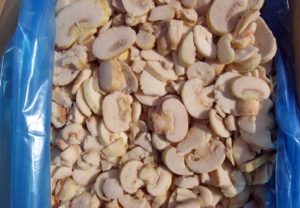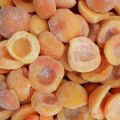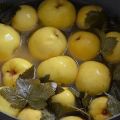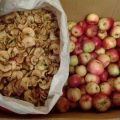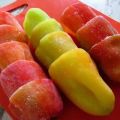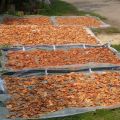How to freeze apples at home in the freezer for the winter
Probably everyone who has their own vegetable garden plants apple trees in it. Often it is not even one tree. And when it comes time to harvest, a reasonable question arises: what to do with the fruit that they did not have time to eat. In fact options storage of apples many, but the most useful is freezing, since in this case the maximum amount of vitamins remains in the product. This article will discuss how to properly freeze apples for the winter in the freezer.
Features of freezing apples at home
There are certain rules that you need to follow if you want to get a quality product:
- Before freezing, the fruits must be dried so that they do not stick together.
- It is impossible to re-freeze the fruit, therefore it is packed in small portions.
- To prevent the peeled slices from turning black, you need to soak them for a quarter of an hour in a slightly salty or slightly acidic solution.
- For winter harvesting, a ripe, not deformed product is chosen.
- Do not freeze fruits that have been plucked for a long time. Make sure that a minimum of time passes between harvesting and processing.
- Apples can be frozen without peeling. It can be easily removed from slightly melted fruits if necessary.
- Apples are frozen at a fairly low temperature, so the freezer must work properly.
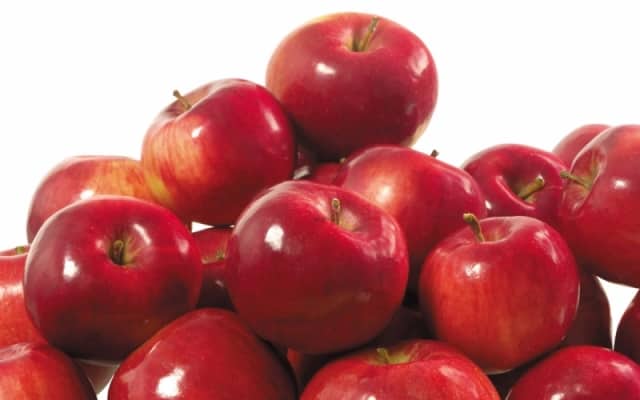
Which apple varieties are best for
Of course, not all apples are suitable for freezing. They prefer late (autumn or winter) sweet and sour varieties: Antonovka, Golden, Kutuzovets, Sinam and many others. The specific variety will depend on the purpose of further use.
For example, Jonathan and Golden Delicious keep their shape best, while Fuji and Gala taste best. But remember, like most frozen foods, apples will change slightly in texture and taste.
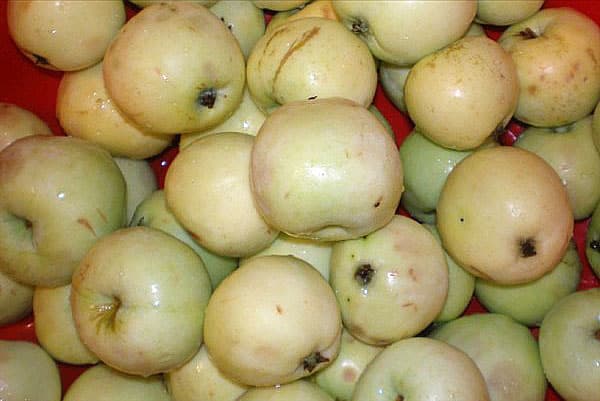
Preparing fruit for freezing
For harvesting fruit you will need:
- apples;
- water;
- towel;
- knife;
- cutting board;
- baking sheets or trays;
- storage bags or containers.

Gather ripe whole apples, wash them well with water and pat dry with a towel. If necessary, cut off the rind with a well-sharpened knife. Cut out the stalk, "tail", core. Next, you need to cut the fruit in the chosen way. If you plan to freeze whole fruits, then just rub them well.
Required temperature
In most recipes, apples are recommended to be stored at temperatures from minus 18 degrees and below.
The colder it is in the freezer, the longer the fruit can be stored.
There is also an option that involves shock freezing. In this case, the apples are immediately packed in containers or bags and sent to the freezer. The freezer compartment is set to the "super fast freeze" mode.
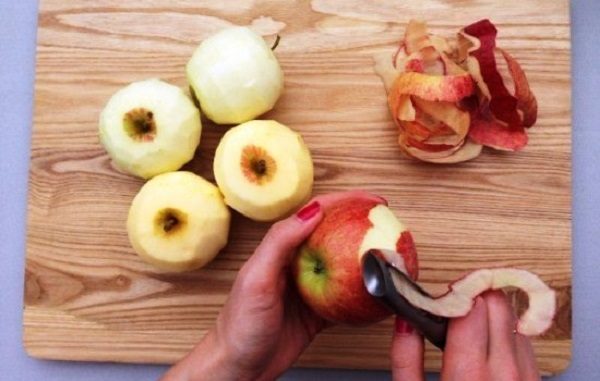
Any of these methods require the ability to adjust the temperature of the freezer.
Ways to freeze apples for the winter
There are different ways to freeze apples. They will differ depending on the capacity of the freezer and the purpose of the freezing.
Wholly
For this freezing option, you need to take fresh apples. First they are washed and dried with a towel. Next, you need to remove the seeds (this rule is optional, but it is better to do this now, because it is much easier). If necessary, you can peel the fruit. If this is done, it is imperative to hold them in a special solution, which was mentioned at the beginning of the article. This will help keep the apples looking appetizing even before the apples are in the freezer.
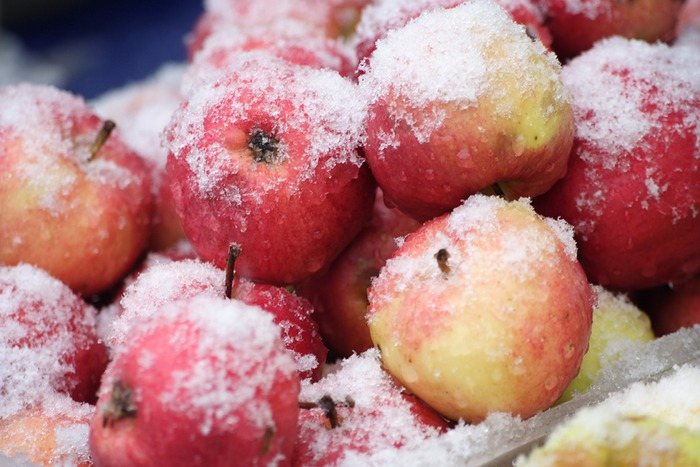
To prepare it you will need:
- water - 1 liter;
- citric acid - 5 grams.
Stir the acid well in water and hold the chopped fruit in the resulting solution for at least a quarter of an hour.
After that, the fruits are packed in bags or sealed containers and poisoned for storage.
Apples frozen in this way can remain in the freezer for up to six months. Whole fruits can then be baked, added to pies, pies or cooked into compote. The only drawback of this freezing method is that fruits take up a lot of space, and it can be simply inconvenient to store them.
Slices
Another popular freezing option is sliced apples. First, you need to rinse the fruit well and dry it with a towel. Further, if you wish, you can remove the peel (if you plan to cook compote, then it is better to leave the peel, but cut it off for various fillings). Cut the apples into 4 pieces and remove the seeds, stem and stem. Next, the fruit is already cut into slices or slices of the required size. To preserve the look, do not forget about salt or lemon solution.
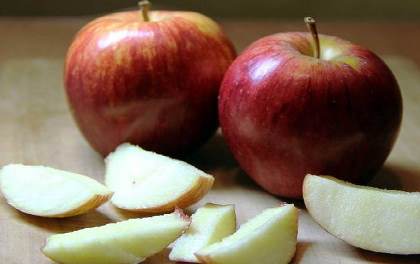
After that, spread the sliced slices on a baking sheet or kitchen board. To simplify the task of shifting, it is better to cover it with parchment or cling film. Place the tray carefully in the freezer compartment of the refrigerator.
The main thing here is to correctly arrange the fruit slices: make sure that they do not touch each other.
After about 3 hours, you can take out the sliced apples and pack them into bags or storage containers. They try to exclude the ingress of air into the container - this will increase the shelf life. Fruits frozen in this way take up much less space.
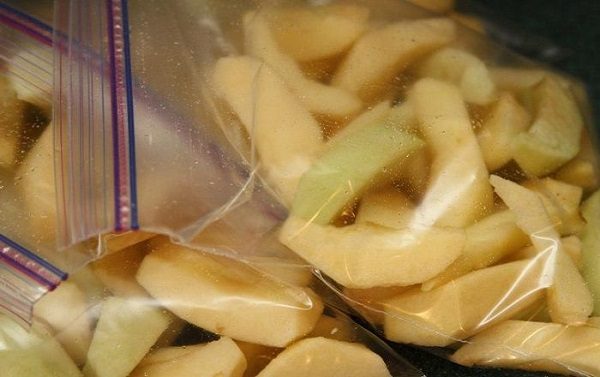
Dry freeze
With this option, apples are frozen in two temperature modes, so you need to have a freezer with the ability to adjust the cold supply. Apples are also laid out on a board or baking sheet in one layer.
Remember to make sure that the pieces do not touch each other. The fruits are sent to the freezer for a couple of hours at a temperature of minus 23. Then the fruit is taken out, packaged and stored at a standard temperature of minus 18 degrees.
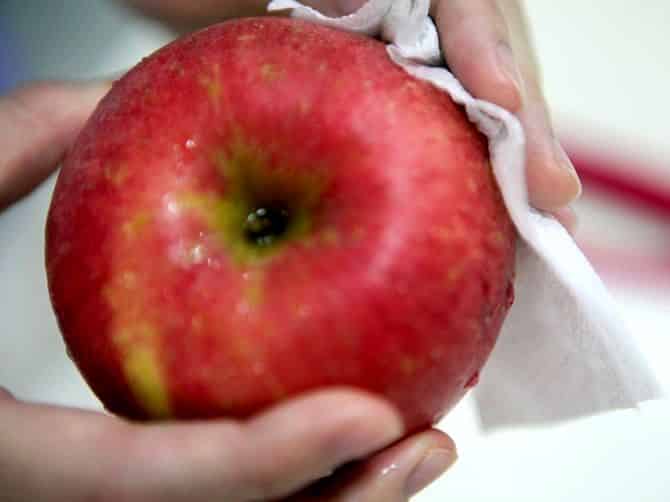
In sugar syrup
This method of freezing is very popular among housewives for two reasons:
- thanks to the syrup, the shelf life is increased up to a year;
- the apples become sweet and can be eaten on their own without any further processing.
Ingredients:
- water - 0.75 liters;
- sugar - 0.45 kilograms;
- ascorbic acid - 1.5 grams.
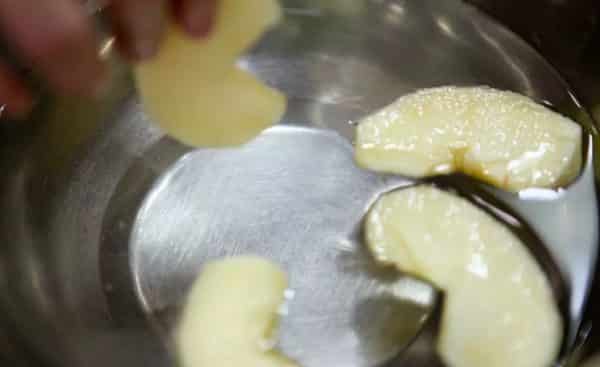
Recipe:
- Boil the syrup from the specified ingredients.
- Cool and pour over the sliced apples.
- After a day, pour over the pieces of fruit with boiling water (it is more convenient to use a colander for this), put on a tray according to the scheme described above and send them to freeze in the freezer.
- After 2-3 hours, pack the apples and store them in the freezer. Do not forget to monitor the absence of air in the container.
Preparation of mashed potatoes
This option of freezing the product is perfect for using mashed potatoes as fillings in baked goods or for baby food. In the first case, you can add sugar to taste, in the second, it is better to do without it. To prepare applesauce, the fruit must be washed, dried with a towel, cut off the peel with a thin layer, remove the stem, seeds and "tail".
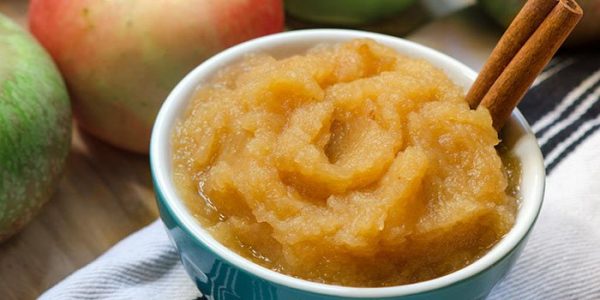
Prepared apples must be cut into small pieces, put in a saucepan and pour a little water. Wait until the resulting mixture boils, reduce the heat to low and simmer, stirring constantly, until the fruits have the required consistency. Cool the resulting gruel. If necessary, you can additionally puree in a blender. The finished puree is frozen in jars. The shelf life is on average 10 months.
Storage
The shelf life of frozen apples at minus 18 degrees is on average 9 months, but it can vary depending on the method of freezing. If you want to extend it, then you need to soak the fruit in a salt or lemon solution.
Ingredients for brine:
- a tablespoon of salt;
- 4 liters of water.
Cooking method:
- Combine salt with water and mix well.
- When the salt is completely dissolved, lower the apple blank into the solution for literally a few minutes.
- Then spread out on a baking sheet and freeze in the standard way.

Ingredients for the sugar solution:
- sugar - 2 cups;
- water - 3 glasses.
Cooking method:
- Mix everything thoroughly until granulated sugar is completely dissolved.
- Pour the apple pieces with the solution for a few minutes and mix well too.
- Spread out on a tray and freeze in one of the ways described above.
If the freezer does not support such low temperatures, you can also freeze apples for the winter, but they will be stored for only 3 months. For packaging, storage bags or sealed containers are chosen. Be sure to completely release air from the bags, if possible, and close the containers tightly. And in order not to miss the end of the shelf life, they sign the packaging date of each container.
